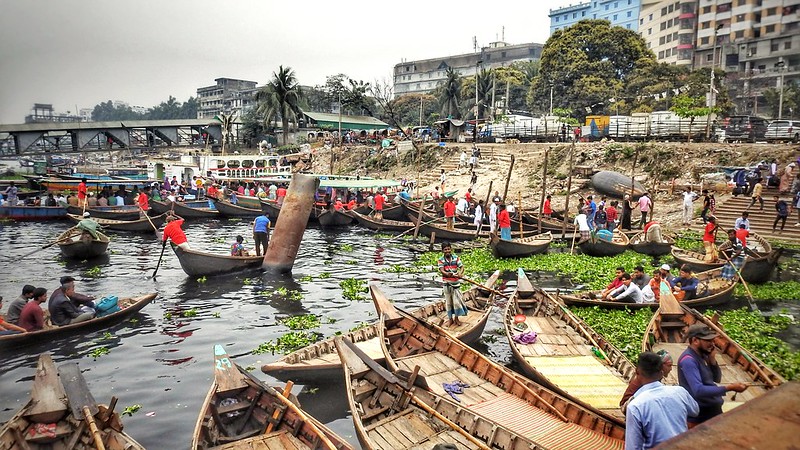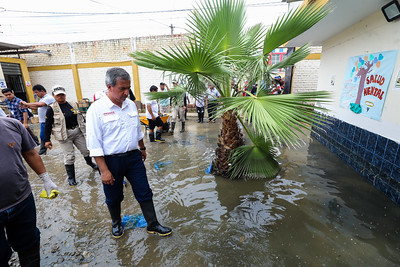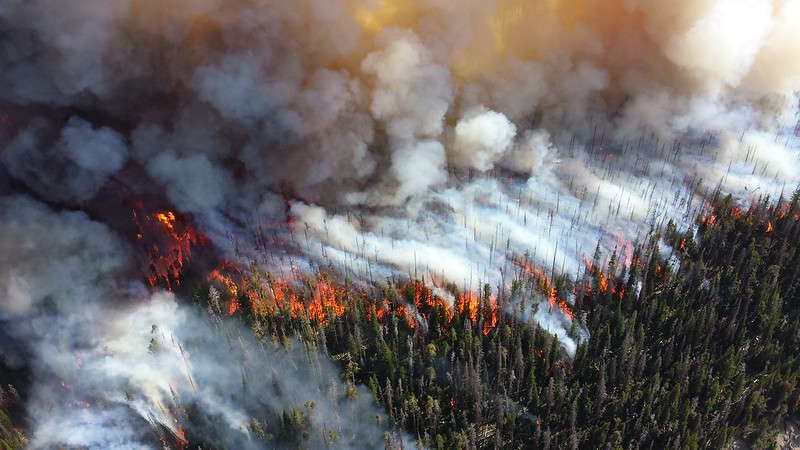In Bangladesh, "the most vulnerable face the full force of climate change”

Bangladesh is one of the countries most impacted by global warming in the entire world. Rising sea levels caused by increasing global temperatures cause a constant risk, its flood-prone surface remains a real concern each time there is a cyclone, and persistent heatwaves are becoming more and more normal each year. Emmaus groups operating in the area are facing the brunt of this but are still nonetheless doing whatever they can to try and help those most in need. One example is the Thanapara Swallows Development Society. To respond as best they can to situations involving poverty and exclusion in rural areas, this Emmaus group has developed training initiatives on fairtrade, as well as establishing educational programmes, providing access to healthcare, fighting against domestic violence, providing microcredit, and doing all they can in the fight to defend an ecological agricultural system that is respectful towards rural workers.
Mynul Haque (Santo), head of the Thanapara Swallows Development Society, tells us more.
In concrete terms, what changes are you seeing in Bangladesh in terms of the climate?
Climate change in Bangladesh is a critical issue as the country is one of the most vulnerable to the effects of climate change. In the 2020 edition of German watchs climate risk index, Bangladesh ranked seventh in the list of countries most affected by climate calamities during the period 1999-2018.
The vulnerability to climate change impacts due to combination of geographical factors, such as flat land, low-lying and delta exposed including socio economic factor high population density, level of poverty and dependency on agriculture. Almost every year large regions of Bangladesh suffer from more intense events like cyclones, floods and erosion which are slowing down the development of the country. The rising of the sea level are predicted to rise by up to 0.30 meters by 2050, resulting in the displacement of 900.000 people.
Our country is currently experiencing a devastating heat wave. For that reason, greater energy and economic issues have suddenly arisen. The prolonged absence of rain and low level of humidity has forced the situation. The country is facing an unprecedented hike in temperature reaching over 40 degrees Celsius (104 degrees Fahrenheit). By continuing heat wave seriously affecting the agriculture, water and food security, human health and shelter.
The climate change in our country will affect the poor and vulnerable people the hardest. It has been estimated that by 2050, one in every seven people in Bangladesh will be displaced by climate change. Especially with a projected 50 cm rise in sea level Bangladesh may lose about 11% of its land by then and up to 18 million people may have to migrate Because of sea level rise alone.
Is this the first time you have experienced such a situation or were there other abnormal climatic phenomena before?
Bangladesh has faced numerous natural disasters in every decade but due to climate change, the intensity of disasters has increased. The country face small to medium scale floods, cyclones, flash floods, and landslides almost every year. The flood is the most common form of natural disaster in Bangladesh. The country was affected by six major floods in the 19th century and 18 floods in the 20th century. Bangladesh has been swept up in the massive heat wave scorching large parts of Asia, with temperatures among the highest in six decades. Almost the entire country was under cover of a heat wave. It is a new experience and also alarming at the same time. This year’s heat wave corroborates this projection. Before, the average highest temperature was 33.2°C (91.8°F), but this year the average highest temperature is 6°C (10.8°F) higher. The situation has been so dire in Bangladesh that officials shut schools for two weeks in June after they recorded sweltering temperatures higher than 40°C (104°F). In Thanapara, the temperature recorded about 44°C in the month of April this year.
How do you experience global warming and what are the consequences for Thanapara Swallows?
Thanapara Swallows Development Society has been conducting various development activities including creating employment for the poor communities and raising awareness on issue base activities in Charghat and Bagha upazilas (sector ?) of Rajshahi district. These two upazilas are located on the banks of the longest river of Ganges/Padma of the subcontinent. Most of the people of these two riverside upazilas are involved in agriculture and fishing. As a result of climate change, the organization working area is experiencing lack of rain, drought, increased temperature, drying up of ponds, lakes, rivers, water level going down, etc.
The water level has gone down; there has been a severe shortage of drinking water and irrigation water in the agricultural fields since April this year. According to the Upazila Public Health Engineering Department, there are about 17,000 tube wells for drinking water in our work area. These tubewells are installed in the first layer of ground water.
Due to climate change, rivers are drying up due to insufficient of ground water during the dry season. As a result of non-rainfall, the ground water label has gone down at an abnormal depth, so people has no water from the tube well of the riverside villages. The fishermen of the working area have become unemployed due to the drying up of rivers, lakes and ponds. These professional people are changing profession and engaging in daily income profession. Lack of adequate water in agricultural land cultivation is disrupting cultivation and increasing cost of crop production.
Is it possible to deal with it and if so, how are you acting on the ground to deal with it?
Thanapara Swallows Development Society, with the financial support of Emmaus International, has been working for the poor communities affected by climate change for the past decade. Apart from raising awareness, the agricultural program includes distribution of organic seeds to poor farmers, training in seed preparation, training in organic fertilizer production and encouraging use of organic fertilizers, encouraging plantation of trees in free land, ensuring participation of farmers in environment days by providing information on climate change, Installation of alternative sources of water like rainwater harvesting, deep tubewell through water project, ensuring arsenic screening of each tubewell, etc.
Thanapara Swallows Development Society in its working area through the Mutual Health Program also organized courtyard meetings in small groups to raise awareness. By ensuring the participation of doctors in these courtyard meetings, the general public is being made aware of the causes, harmful effects and remedies of heat wave. Drinking plenty of water is advised. In order to reduce the water shortage in the dry season, it is advised to conserve water in the monsoon season. Farmers are being advised to plant more trees through the Sustainable Agriculture Program.
How do you expect the years to come with this climate change at the level of Emmaus activities in Bangladesh and more generally for the poorest populations?
Thanapara Swallows Development Society feels that ensuring the participation of marginalized communities will play a role in helping them to be affected by climate change. Most of the organization’s operations are located in riverside areas. A plan is being taken to raise awareness among the people of the riverside areas to create public opinion to prevent river erosion. By creating public opinion, in coordination with various government departments like Directorate of Disaster Prevention and Promotion, Forest Department, Water and Sanitation Department to initiate tree plantation programs in affected areas, construction of dams, creation of alternative water sources, etc.
We want Emmaus International to play an important role in protecting the communities in the organization’s work area from climate change.
In addition to the formation of funds, Emmaus International can provide helpful information to protect climate change so that the organization can disseminate this information and make the local communities aware. We believe to work on agriculture more closely to help to reduce emission at relatively low cost and helping local government authorities for implementing the policies.
Photo©Dennis Sylvester Hurd


